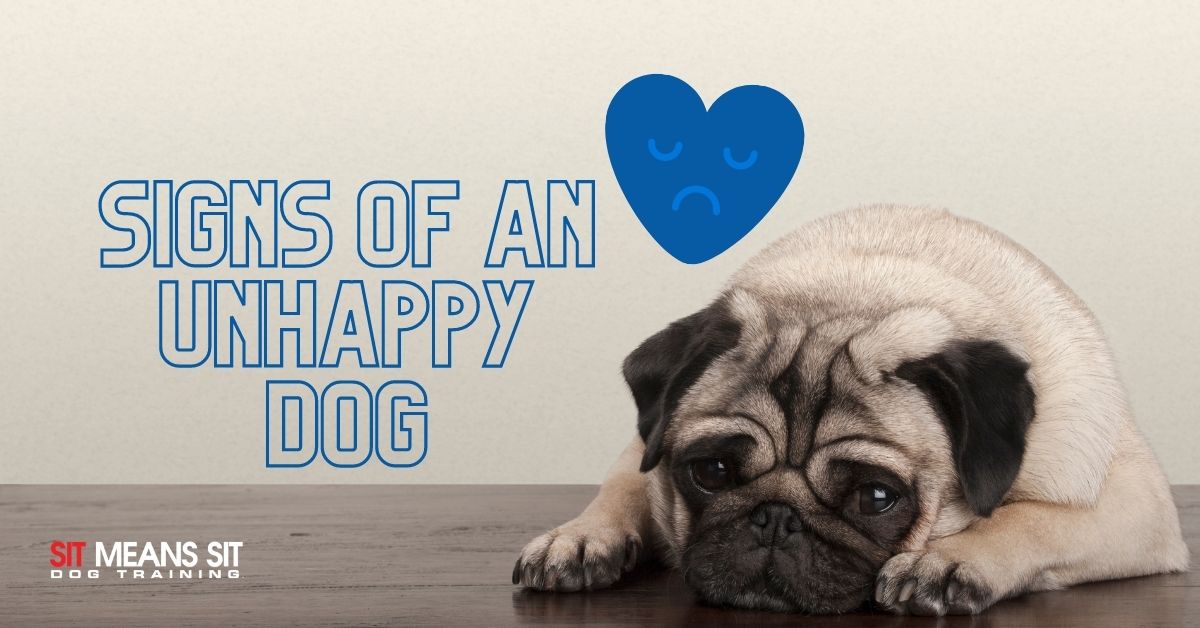
Signs Your Dog Isn’t Happy
Just like humans, dogs can go through sad periods or become depressed. There are many reasons why a dog could become unhappy from boredom to diet. The rough part of having a sad dog is that they are unable to express their feelings through words. Dogs are able to communicate in many ways, though, such as through their habits and movements. Normal is a relative term for a dog’s behavior as every dog acts differently, but there are certain universal signs of depression. Here are a few signs that your dog may be feeling down and how you can help.
Appetite
When feeling unhappy, some dogs will resort to not eating at all as they may not have an appetite. On the other hand, other dogs may eat much more than they typically do, which could be a sign of sadness. Whether eating more or less, any change in appetite could lead to a shift in weight and should be examined.
Sleep
Similar to their eating habits, a dog’s sleep schedule can tell a lot about how your dog may be feeling. Dogs often sleep more than humans do, but if you notice a significant increase in their sleep schedule, it might be a sign that they are glum. When feeling down in the dumps, some dogs may have insomnia and do not sleep as often as they typically do. Any change in snoozes could be a sign of depression or a deeper issue so check in with your veterinarian.
Play
If your dog is typically playful and is seeming uninterested in its typical activities, something may be wrong. Some dogs are interested in toys and are always asking you to play with them, but if they have been neglecting their playthings it could be a sign of depression. Other dogs are into exercise and want to be walked or engaged in another way. No matter the personality of the dog, if they seem to be acting differently it could mean that something is wrong and they may be unhappy.
Avoidance
When feeling sad, some dogs may tend to ignore, cower, or avoid their typical habits and humans. Avoidance is a typical observance for dogs that are unhappy and is seen as a coping method for these feelings.
Aggression
Another coping and communication strategy that some dogs may use when feeling downcast is a display of aggression. If your dog is typically calm, cool, and collected and they are exhibiting aggressive outbursts, it may be a sign of melancholy feelings.
Dogs may also act recklessly and destructively to gain attention or compassion from their owners. If your dog is acting out and displaying destructive behavior, it could be a sign of depression.
Excessive Licking
Most dogs lick and chew on their paws to clean or maybe scratch themselves, but sometimes dogs may do so for other reasons. When feeling unhappy, some dogs may lick excessively to soothe themselves if their humans are unknowing.
Pacing
Similar to an anxious human, some dogs may pace if they are feeling unhappy, anxious, or bored. If you notice your dog wandering or pacing around the house, it could be a sign that something is off with their mood.
How to Help
Although it is hard watching your dog go through a hard time, there are many things you can try to do to help brighten their mood and help them out of a depressive slump.
- Give your dog more attention
- Keep your dog active i.e. walks, playing, etc.
- Reward them when they appear happy
- Get your pooch outside and get some Vitamin D
If things do not seem to work, it may be a good idea to contact your veterinarian for their specific recommendations. Some options might include medication, behavioral treatment, or other advisements on how you can help your dog get back to its normal self.
